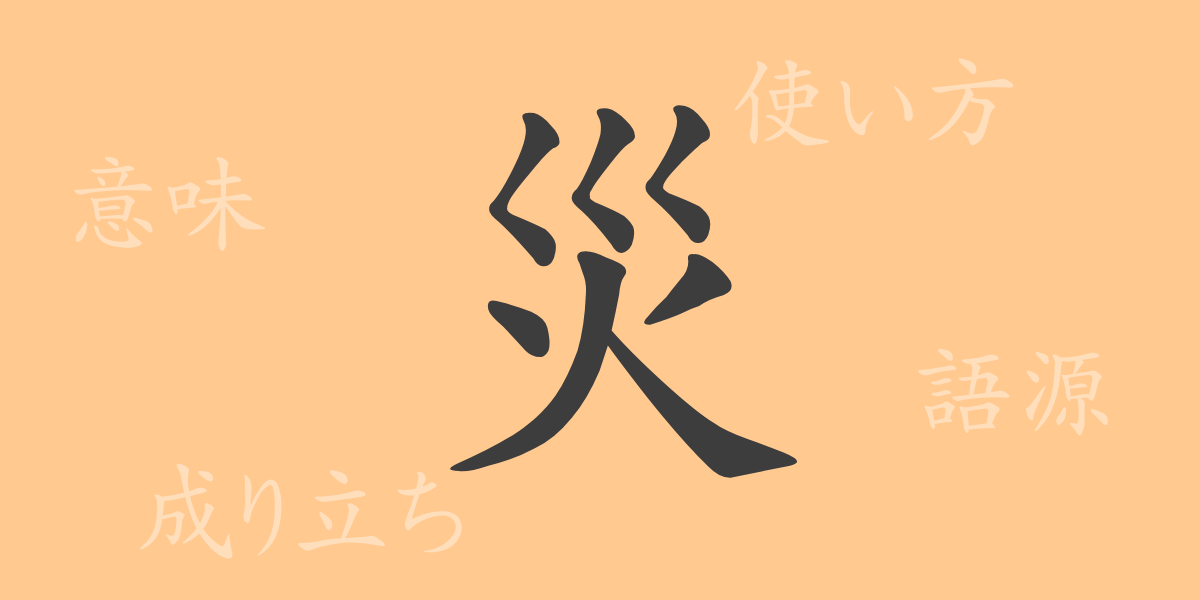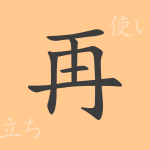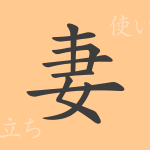Language is a mirror that reflects culture and history. In the lives of the Japanese people, the character “災” (sai) has been used to symbolize various situations. From natural disasters to man-made calamities, this single character carries many lessons and warnings. This time, we focus on the common-use kanji “災” (sai), delving into its origins, meanings, usage, and idioms.
Etymology of 災 (sai)
The kanji “災” (sai) has its origins in ancient China. Derived from pictographs, the upper part of this character includes “巛” (san-sui), and the lower part transforms “巛” into “巟” (kou). This depicts the occurrence of disasters caused by water, reflecting the significant impact of water-related calamities on people’s lives since ancient times.
Meanings and Usages of 災 (sai)
The kanji “災” (sai) means “damage or misfortune caused by natural or accidental events.” This character is frequently used to refer to natural disasters, as seen in words like “災害” (saigai, disaster) and “天災” (tensai, natural disaster). Additionally, it is used to describe accidents or unfortunate events caused by human actions, such as “人災” (jinsai, man-made disaster).
Reading, Stroke Count, and Radical of 災 (sai)
The kanji “災” (sai) has several readings in Japanese.
- Reading: In the on’yomi reading, it is read as “サイ” (sai), and it has no kun’yomi reading.
- Stroke count: It consists of a total of 7 strokes.
- Radical: The radical is 灬 (rekka/hihen, meaning fire).
Idioms, Phrases, and Proverbs Using 災 (sai) and Their Meanings
There are various idioms, phrases, and proverbs in Japanese that include “災” (sai). Here are some examples:
- 天災地変 (てんさいちへん, tensai chi-hen): Refers to natural disasters and earth changes, indicating events beyond human control.
- 火の車 (ひのくるま, hi no kuruma): An expression representing a dire situation or extreme hardship.
- 災難が転じて福となる (さいなんがてんじてふくとなる, sainan ga tenjite fuku to naru): A proverb meaning that misfortune can unexpectedly turn into a blessing.
Conclusion on 災 (sai)
The meaning contained in a single kanji is profound and closely related to our lives. The character “災” (sai) represents the impact of natural and accidental events on people’s lives, and the wisdom and experiences passed down to overcome them. In Japan, where natural disasters are frequent, this kanji plays a crucial role in daily life. Through “災” (sai), we will continue to learn the importance of coexistence with nature and crisis management.

























